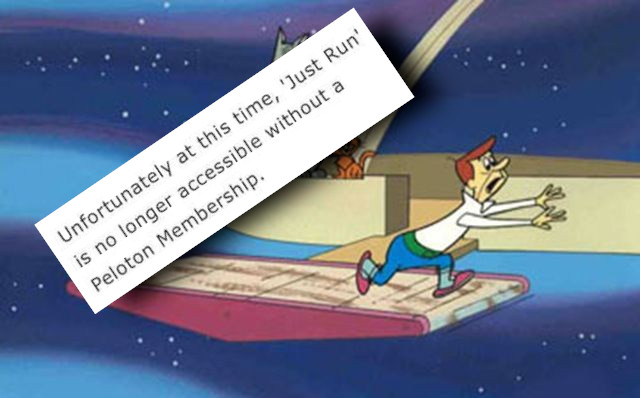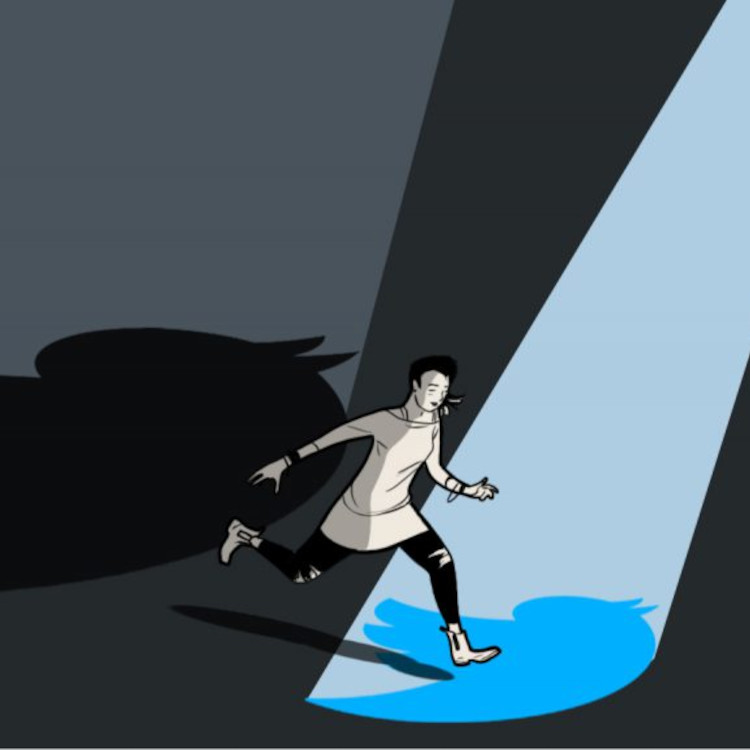
Today on my podcast, I read "Inside the Clock Tower," a short science fiction story for @consumerreports that depicts a future of interoperable social media (as contemplated by the recently introduced #ACCESSAct).
digital-lab.consumerreports.org/2021/06/15/ins…
1/
digital-lab.consumerreports.org/2021/06/15/ins…
1/

(If you'd like an unrolled version of this thread to read or share, here's a link to it on pluralistic.net, my surveillance-free, ad-free, tracker-free blog:)
pluralistic.net/2021/06/21/int…
2/
pluralistic.net/2021/06/21/int…
2/
The ACCESS Act would require large social media platforms to create gateways (APIs) that new services could plug into, so that users who quit the monopoly services would still be able to talk to the friends, customers and communities they left behind
eff.org/deeplinks/2021…
3/
eff.org/deeplinks/2021…
3/
When people - both critics and apologists - argue about digital monopolies, they tend to over-emphasize the "network effects" and give short shrift to "switching costs."
4/
4/
A product or service has network effects if it gets more valuable when new people sign up for it. You might hate Facebook but still use it because you value the people you can talk to there.
5/
5/
That's network effects - a mutual hostage-taking where everyone uses it because everyone uses it. Any attempt to quit means choosing between your friends and your privacy and dignity - and the more people there are on FB, the harder it is to convince everyone to quit at once.
6/
6/
But "friends vs FB" isn't a "natural" outcome of the service - it's a design-choice Facebook made. After all, you don't have to use the same cellular phone company or email provider as your friends in order to talk to them.
7/
7/
The only reason you have to use FB to talk to your friends is FB won't let rivals connect to its service. FB wants to impose a "switching cost" on disloyal customers who flee to a rival service - they WANT you to have to give up something to quit Facebook.
8/
8/
The more you stand to lose by quitting Facebook, the more Facebook can abuse your privacy and commodify your relationships without risking your defection.
9/
9/
It's not just FB, of course. Amazon Prime exists as a means of making you give something up when you use a rival service (Jeff Bezos said as much when he created it).
10/
10/
Ditto any "ecosystem" of mobile devices, app stores, proprietary cables and chargers, clouds, etc; same goes for DRM (quitting Audible means giving up thousands in audiobooks) and other lock-ins.
11/
11/
Even Spotify playlists - which are locked to the platform, unlike albums, which rivals can duplicate - are part of the switching-costs story (which is why Spotify pushes playlists so hard).
12/
12/
That's why interoperability - forcing companies to let co-ops, tinkerers, startups, public agencies and others connect to their services; and repair, supply parts and apps for their products - is such an exciting part of the new anti-monopoly movement.
13/
13/
Every would-be monopolist is always on the lookout for ways to raise switching costs, and high switching costs enable more abusive business models.
14/
14/
Interoperability reduces switching costs. It neutralizes the deliberately engineered product and service designs that make you choose between staying in your communities or protecting your investments, and escaping abusive business practices.
15/
15/
That's the story I try to tell in "Inside the Clock Tower." It's all well and good to talk in the abstract about how a policy change might work, but science fiction can give us an emotional fly-through of what it might be like to live in a different technological world.
16/
16/
It's one thing to say, "Interop is how we reclaim technological self-determination," and another to feel what that means for people you can empathize with. I'm really grateful to Consumer Reports for publishing my story and including sf in its theory of change.
17/
17/
You can read the story here:
digital-lab.consumerreports.org/2021/06/15/ins…
and hear the podcast here:
craphound.com/news/2021/06/2…
and here's a direct link to the MP3 (hosting courtesy of the @InternetArchive, they'll host your stuff for free, forever):
archive.org/download/Cory_…
18/
digital-lab.consumerreports.org/2021/06/15/ins…
and hear the podcast here:
craphound.com/news/2021/06/2…
and here's a direct link to the MP3 (hosting courtesy of the @InternetArchive, they'll host your stuff for free, forever):
archive.org/download/Cory_…
18/
And here's the link to subscribe to my podcast, now in its 15th (!!) year, and never sounding better, thanks to the kindly ministrations of @WryneckStudio
, my masterer and editor:
feeds.feedburner.com/doctorow_podca…
(Image: Jason Schneider for Consumer Reports)
eof/
, my masterer and editor:
feeds.feedburner.com/doctorow_podca…
(Image: Jason Schneider for Consumer Reports)
eof/
• • •
Missing some Tweet in this thread? You can try to
force a refresh











